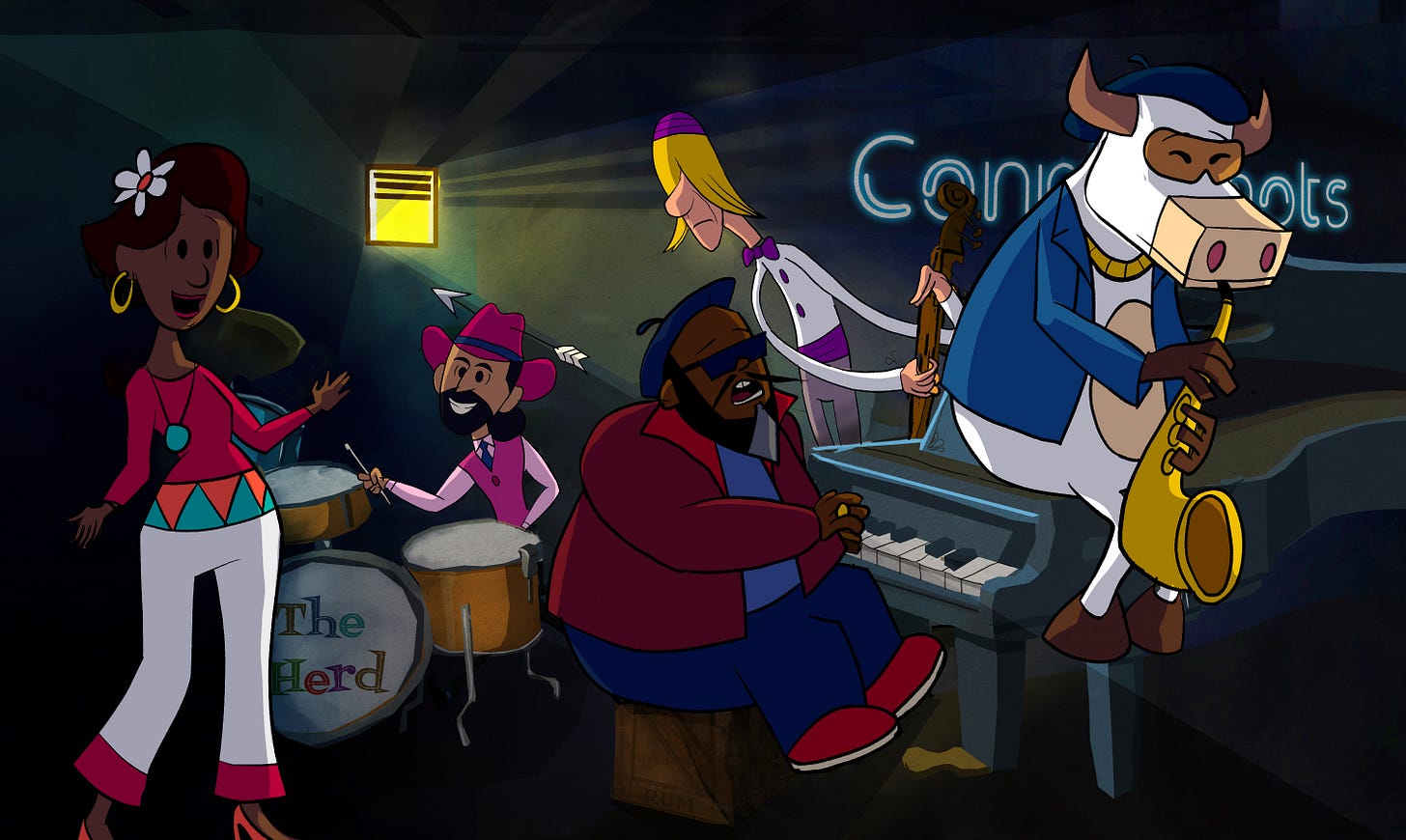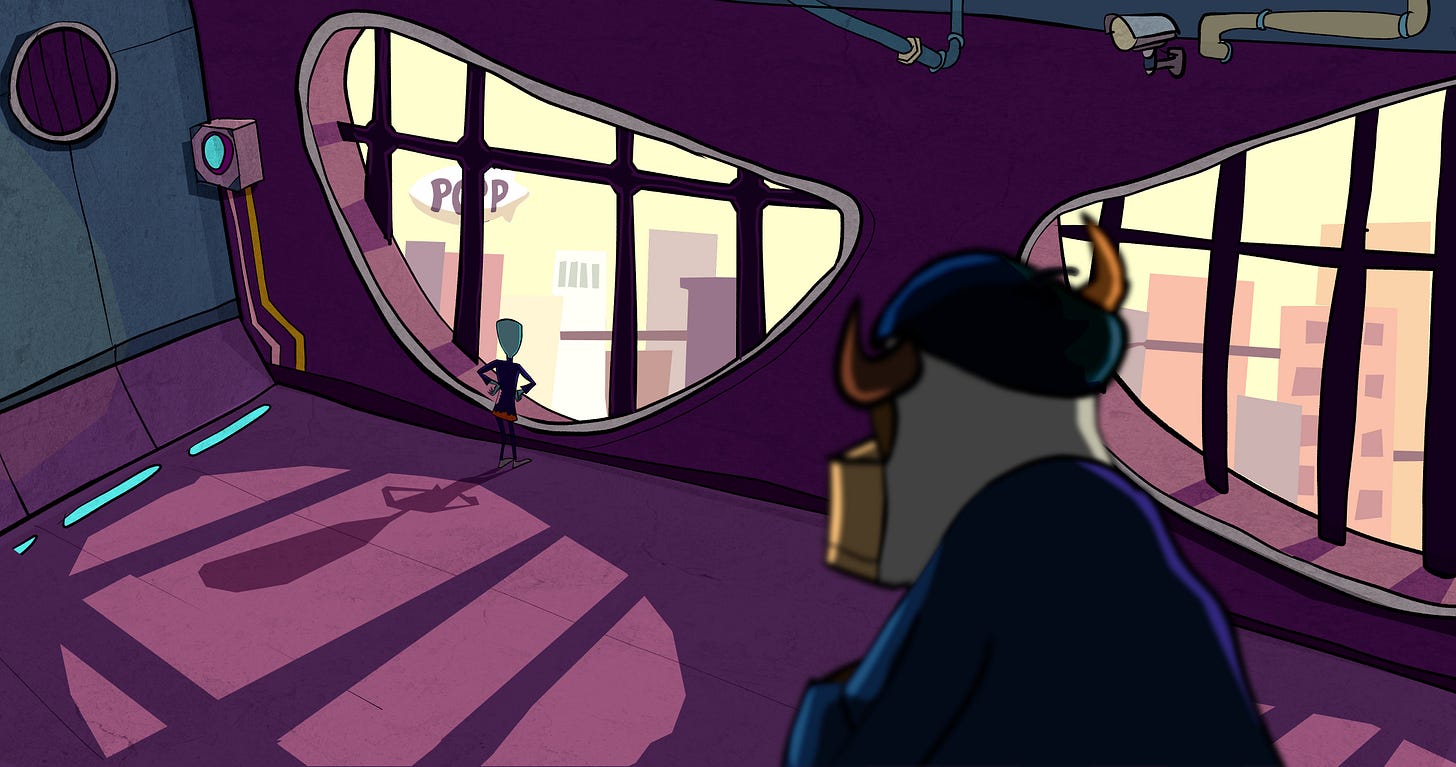It’s easy to watch a sitcom and assume that the main thing you need is a bunch of funny characters saying funny things.
Yes, jokes are great. My head is bursting with wonderful one-liners from all kinds of sitcoms over the years, from Cheers and Frasier, to Red Dwarf and Only Fools and Horses. But a sitcom is more than funny dialogue. A lot more.
One of the most enduring popular sitcoms of the last forty years in the UK has been Blackadder. Edmund Blackadder – as an Elizabethan lord, a royal butler or an army captain – says so many funny things. Like these:
But copy this character at your peril.
Elton and Curtis had to find a way of making Edmund Blackadder do more than say funny things. How could they motivate him a character who is rather louche and, you sense, wants be left alone. In fact, he’s rather mean and sadistic – and consistently rude to and about Baldrick, who is not a bad person at all. How on earth did they pull this off?
We do feel slightly sorry for Blackadder. In Blackadder II and Blackadder Goes Forth, Blackadder merely wants to survive without being beheaded or shot. This makes him easy to sympathise with. But it doesn’t necessarily help when it comes to plot. In fact, there’s a serious danger of this character being passive.
Passive characters are comedy Kryptonite. You get them a lot in spec sitcom scripts. There might well be one in yours, especially if your script is set on the first day at work in which the main character spends the whole episode being shown around.
Even if your character is a wise-cracker, eventually, we’re going to demand action, plot and quests.
Problem Noted. Solution Please.
Okay. So what’s the solution? The answer comes from poet John Donne:
No man is an island,
Entire of itself;
Every man is a piece of the continent,
A part of the main.
In other words: relationships.
Relationships are critical for your sitcom. Sitcoms are not so much about situations, or even characters. They are about the space between the characters.
In the case of Edmund Blackadder, writers Curtis and Elton placed him in hierarchy. Crucially, he’s not at the top. Nor is he at the very bottom – with nothing to lose. He is somewhere in the middle.
Above Blackadder are his superiors – Queenie; Prince George; General Melchett – who can literally tell him what to do. They are idiots. In some cases, they are extremely dangerous idiots who can get him killed. But he must obey them, even though we can all see he is smarter than them. How will he survive?
With the help of his friends? He doesn’t have any because he’s the worst.
With the help of his staff and underlings? No. The only people Blackadder can order are also idiots: Baldrick, Lord Percy, Mrs Miggins, Lieutenant George.
Blackadder, then, is more than just a funny person who says funny things. He is in a hierarchy. He now finds himself having pretend to be someone whom he already executed (so he could have more time off: good characterful plot point!) and so has to put a bag over his head. Funny.
Ron Swanson
It’s a similar story with Ron Swanson, a wonderful but peripheral character at the beginning of Park and Recreation. He’s a libertarian who’s in charge. He doesn’t believe in government so he doesn’t want to do anything. Great idea. But also comedy kryptonite, not useful for anything except jokes and saying ‘no’.
But the writers brought in Chris Traeger – and now Ron has to dance to his relentless upbeat can-do tune. And the irrepressible Chris Traeger has to learn from Ron:
And then the writers brought in Tammy. In fact, two Tammies. Tammy 1 and Tammy 2. Suddenly, Ron has multiple relationships that make him more than a roadblock for Lesley Nope. As a result, he becomes an unlikely confidant, mentor and friend.
How Now Jazz Cow?
This brings us to a cool saxophone-playing cow, called Jazz Cow. He doesn’t want trouble from anyone. He just wants to be left alone to play his horn with his band. When developing the idea with the show’s creator, John Lumgair, we decided to lean into the fact the town was being taken over by Dr Popp who represents everything Jazz Cow is against. Dr Popp is all about getting everyone to submit to the algorithm. But Jazz Cow is all about old-school-in-person experiences; free expression; improvisation; serendipity.
However, we wanted to be true to Jazz Cow’s character. He’s just not the kind of cow who goes looking for trouble. He doesn’t want to a leader of the analogue resistance. That’s a problem for the plot. So how do we make Jazz Cow an active protagonist in our pilot?
We’ve created a nemesis. That would be Dr Popp. And in our pilot episode, Dr Popp steals Jazz Cow’s saxophone – in order to put a stop to the good times at Connie Snott’s. He wants the punters – and Jazz Cow – to come over to his own carefully controlled jazz club called The Milk Factory. But Jazz Cow’s not playing ball.
But Jazz Cow can’t console himself by playing the blues. He’s missing his horn. And with the cops in the pocket of Dr Popp, Jazz Cow will have to get back his irreplaceable instrument himself – and in so doing, he learns that he never has to go solo. Denzil and the band will help him every step of the way.
If you want to know how it all turns out (and I can’t wait to see!) then do chip into the Kickstarter which expires on 25th October. Now there’s jeopardy! But we’ll talk about jeopardy another time.
This ‘heirarchy’ idea first reared its head in Sitcom Geeks Episode 105 in which Dave Cohen and I interviewed comedy writing legend Paul Mayhew-Archer back in 2019. The show notes say:
Dave and James talk to writer and producer Paul Mayhew-Archer, about his massive four-decade career making audience sitcoms: shows he co-wrote that went well, like The Vicar Of Dibley, shows he helped onto the screen that didn't go so well, like Chalk and 'Orrible. Paul also shares a wealth of advice and experience as well as a lovely story about a man trying his hand at comedy and then drama.
Have a listen here:





